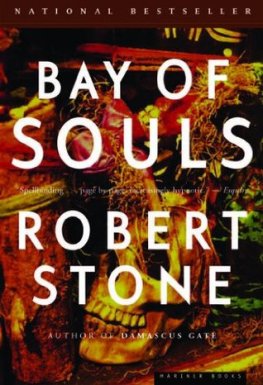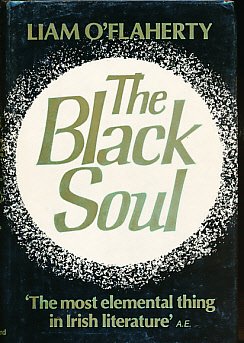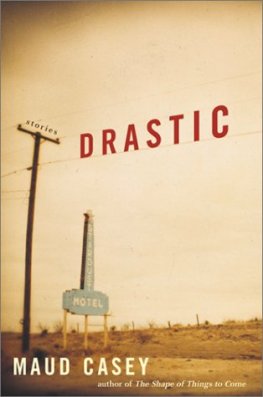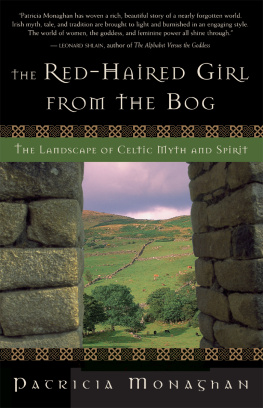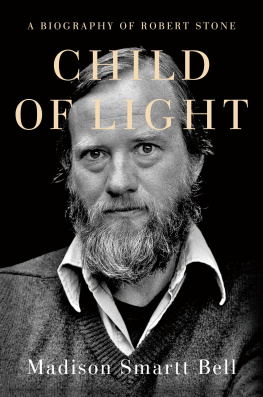Robert Stone
Death of the Black-Haired Girl
YOU LOOK LIKE A WHITE CAPTIVE, Shelby said to Maud.
Maud saw herself in a mirror on the bathroom door, winter pale, wrapped in a Salish blanket. She pulled the blanket tighter around her thighs and shoulders. Her skin was very fair but rosy after her shower.
You think?
Totally, her roommate said.
Maud huddled beside a bay window of her suite, shivering deliciously in the drafts of ice-edged wind that filtered through the plaster and old stone of the building. Cheerless dawn lit the pinnacles and tracery of the Gothic towers across the Common. One by one, southeast by northwest, the trunks of the elms along the walks lightened to gray. All at once, the street lamps died together.
It was all so bleak and beautiful and she was happy to be there. She loved the morning, loved warming herself against the venerable drafts of Cross Inn, safe from the steely street outside. She wrapped the blanket more tightly, tossed her hair from side to side. Mauds hair was silky and black as could be; it dazzled against her pale skin, high color and her bluest of eyes. She had always worn it long and would not dream of playing geek with it, uglifying herself with streaks and punky cuts. Sometimes she used an iron on it the way girls in the sixties had. Beautiful was a word Maud heard too often and too early in life. Once, in high school, she had tried to steal an art book from the Metropolitan Museum of Art gift shop because one of her teachers said there was a Whistler painting of a girl who looked like her.
They had stopped her at the top of the steps outside. The store manager herself had followed Maud across the crowded lobby and blocked her escape on the top step and then stood by, trembling with satisfaction, while an officer made her produce the bag from under her parka. Maud had obliged the ugly old bitch by crying, and even five years later she remembered every moment of that mortification, right down to the spring weather and the faces of the dumb tourists who stood nudging each other at the museum doors. She had worried about losing her National Merit Scholarship and about her father finding out, but nothing came of it.
Still attending her mirror, Maud bent her head forward and let her hair hang down in front. She had considered art history as a major but then changed it to English with a writing concentration. She straightened up for the glass. Her neck was shapely and strong.
In front of the church on the edge of the Common, she saw the homeless men gathered to wait for meal tickets. They huddled like animals, leaking plastic foam from their dumpster ski jackets. A few of them tried to find space to sit on the narrow park rail which, at some time in the eighties, had been set with spikes to discourage unsightly feeding and defecation. A new franchise hotel had its main entrance across the street.
Railings had been reconfigured; a city bus stop was moved a block. There had been protests; there were always timely protests. The protesters accused the parks department of obliging the hotel, catering to consistent bias against the homeless, the handicapped and the poor. Maud had written a witty and passionate column in the college newspaper, opposing and mocking the move which had been much admired. It went without saying that most downtown workers, as well as most students with classes in nearby buildings, felt more comfortable after the work was done. Even Maud had to admit that it had been an ordeal to pass by every day, and there was no question but that the Common looked more cool without the poor.
Outside, the morning rush had not quite begun. A city bus was parked at its last designated stop with its motor running. Traffic was sparse, and only a few late-shift college workmen were headed for the underground parking lot below the Common.
So, hey, said Mauds roommate, whom everyone called Shell. What you got on today?
Shell was an actress and had been a principal in a few independent movie productions of the sort that played limited-release houses. Her name was Shelby Magoffin, and she came originally from eastern Kentucky. She talked that talk as necessary but had many voices. She was studying for a degree in drama, having transcended her hard upbringing and a much too early marriage. Shell was not one of your extremely pretty actresses but she was memorable, thin and eccentric in a way that would have brought her character roles in the old Hollywood. Sometimes people asked her about her marriage other students, curious. Ever hear from the guy?
Oh, Shell would say, first boy I loved, quoting the Judy Collins song.
No, she would tell them, never. But that was not true. He called her sometimes.
You got a date with Mister Man today? Shell asked.
Early appointment, Maud told her.
She folded her hair under a black sailors watch cap, borrowed a hooded jacket of Shells, put on painters pants and hiking boots. She had on nice underwear, though, in case, as her mother had always said, she was hit by a bus or, as Mom omitted to say, overcome by passion.
They took a shortcut past the church, now sounding its seven oclock chimes. Their route would take her past the bus stop and the queue of bums, but Maud felt it would be craven and unprincipled to avoid it.
The early morning rush hour was beginning as the two women hit Amity Street. A few pedestrians walked quickly toward the college and the office buildings on the far side of the Common. Cars were caught at the light, and the healthier, more aggressive among the poor, mainly young black men who had taken places at the front of the line, stepped into traffic, talking.
Yo, I say, Cadillac man.
But the drivers were not Cadillac men, or if they had Cadillacs, the Cadillacs were twelve years old and patched, and plenty of the drivers were women. At that hour, Cadillac men would not appear, although at ten there would be plenty, and Saab sahibs and Bimmers, thoughtful Volvo men and suburban soubrettes in armored Abrams-class deuce-and-a-half Windstars or Jeep personal-use vehicles. So there was agitation and the locking of retro car doors, dirty looks from the honest working stiffs and silent muttering behind the rolled-up windows. Out walking from the city garage, older men put their hands in their pockets and kept their eyes on the street. Young white men in bunches laughed it off, red-faced, simmering with piss-off. The panhandlers laughed back at them, hot-eyed, selling wolf tickets.
There had actually been a summit the previous year the City, the College, the Police, the Coalition for the Homeless and the Overseers of the Common. Participants in the summit were cautioned against the use of certain words. The words: dirtbag, wino, bum, scum, street scum, chronic nuisance, predator, freeloader, disenfranchised, disadvantaged, the poor, criminal, jailbird, vagrant. Biculturally conscious, the summit included the words cabrn, criminal, ratn, ladrn. The mayor, free on bail after his arrest and indictment for racketeering, gave a comment to the struggling newspaper of record to set in funny-colored inks.
This is talk we dont want to hear in our city, said his worship the mayor.
The panhandlers watched the two women go by; a few affected haughty indifference. Shelby was dimmed down in a checkered lumber jacket and wraparound Oakleys of a midnight hue. Maud, in the flat-soled hiking boots, was just under six feet tall; she towered over Shelby when they walked together, though there were plenty of girls at the college who were taller than Maud. The female students, mainly teenagers, were on average taller than the men of the town.
Steely wind hit them from the bay, a few blocks beyond the Common. Cross Inn was on a corner where marine gales coming up the river were set spinning by a cluster of high-rise bank and insurance company buildings. They whipped all winter through the Gothic courtyards of Old Campus on the other side of the Common. Beyond the colleges and the ghettos of Shoreham and Northwell stood the high ridge that showed seasons to the grimy town. In winter it displayed bare rock, dead leaves, brown branches, streaky snow. God had raised the ridge centuries before to protect the colony and the college from the pagan and papist savages on the other side. The college had always required and received protection.





